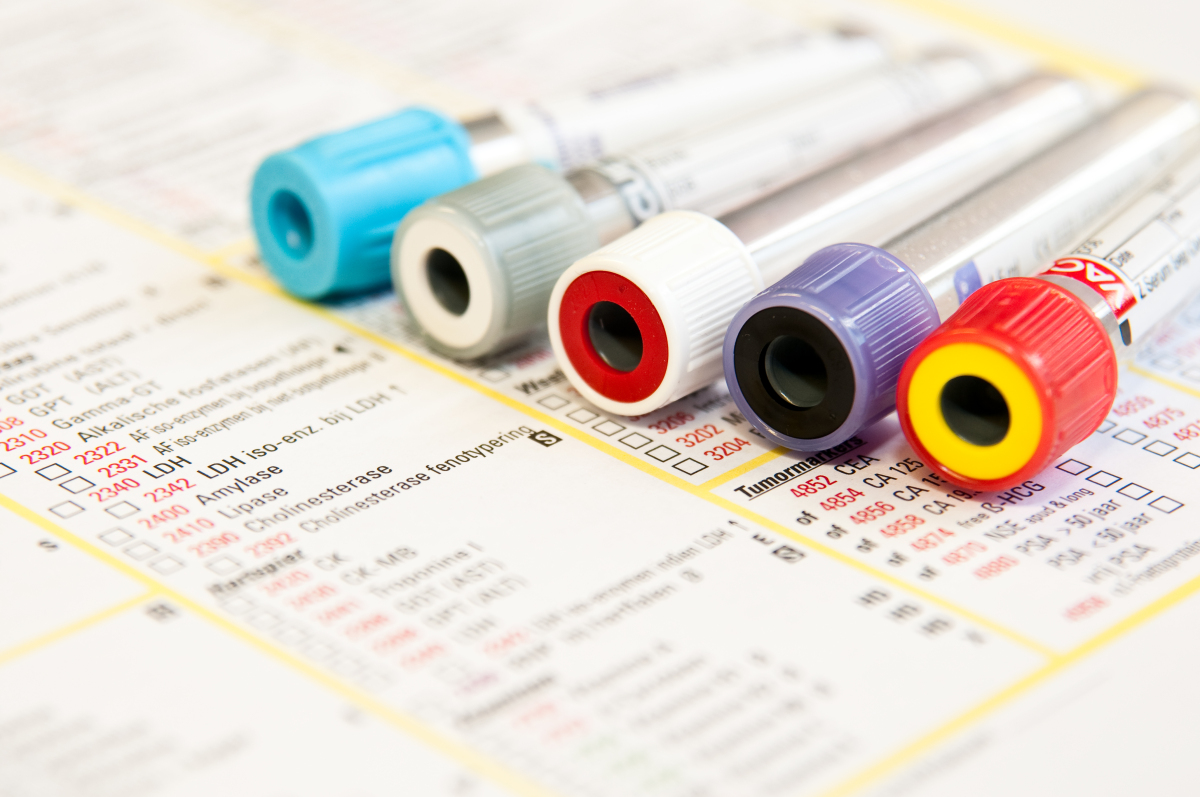Results and Requests
Reporting of results
Because rapid reporting is necessary to optimally contribute to the diagnosis, we mainly focus on electronic reporting. The laboratory provides various (digital) options for receiving your results. All results are automatically sent to the physicians eHealthBox several times a day, so that they can be read into the electronic medical record (EMD). We support all common formats for this.In our results server Lab Online you can consult the available results in real time at any location or time. Previous results are clearly displayed next to each other, graphs and cumulative reports can be printed from here.
Our Lab2Go ® app for your smartphone gives you the flexibility to always stay informed, even without a PC.
Urgent and pathological results are of course communicated by telephone, usually by a clinical biologist, so that the results can be discussed with him/her if necessary. Sms, fax and secure mail are also always possible.
For communication with colleague laboratories or occupational health services, we can provide a Lab-to-Lab link.
Everyone can of course still receive paper reports.
Requests
Every sample comes with an application form!Preferably use Lab Online or AML's paper request forms, provided by us with your identification data. In the margin, the various sampling reagents are listed. The abbreviations are explained in the Lab Guide.
The request form must contain the following information:
- Identification data of the prescribing physician
- Name, first name, address, RIZIV number (pre-printed)
- Signature of the prescribing doctor
- Patient details (health insurance vignette or fill in)
- Name
- First name
- Address
- Date of birth
- Gender
- National number
- Any clinical data (mandatory for an analysis with a diagnostic rule)
- Date of prescription
- Date and time of sampling (important in the case of multiple samples)
- Analyses ticked individually
- Analyses not printed on the request form can be noted in the 'Other tests' box.
The analyses that may not be charged to the RIZIV, the laboratory will charge the patient.
Written consent patient (RD 17/12/23):
This box allows you to indicate that the patient was informed by you about the choice of tests and financial implications and gave a written consent for this, which is kept in the medical record. If the box is ticked, AML will perform and charge the non-refundable tests to the patient as well as, if applicable, any supplements.
Some analyses require specific request forms (pathology, cytology, molecular diagnostics, etc.) The laboratory recommends the use of these specific forms with mention of all necessary data.
Laboratories subcontracting analyses must always state whether the patient is internal (hospitalised) or external (outpatient).
Specific application forms can be created for laboratories, occupational health services and industry.
To process your request quickly and without errors, you should preferably use the scan forms that are read in electronically.
Additional requests
If additional analyses are necessary, based on the results obtained and/or the clinical course, this can be done on samples taken earlier. Of course, this depends on the nature of the sample and the analysis requested.Retention times:
- Serum samples: 7 working days at 4°C
- EDTA tubes: 3 working days at 4°C
- Citrate tubes: 2 working days at room temperature
- Glucose tubes: 1 working day at 4°C
- Blood samples and sera for occupational health and toxicology using elemental analysis, GC & GC-MS: 5 weeks at 4°C
- Blood samples and sera for occupational health and toxicology by HPLC: 5 weeks at -20°C
- Microbiological samples: 1 week at 4°C
- Urines for occupational health and toxicology studies: 6 weeks at 4°C
- Paraffin blocks (histology): 20 years at room temperature
- Fluids (cytology):
- Cervical cytology: 6 weeks at room temperature
- Non-cervical cytology: 10 working days at 4°C
- Slides (histology and cytology): 20 years at room temperature

